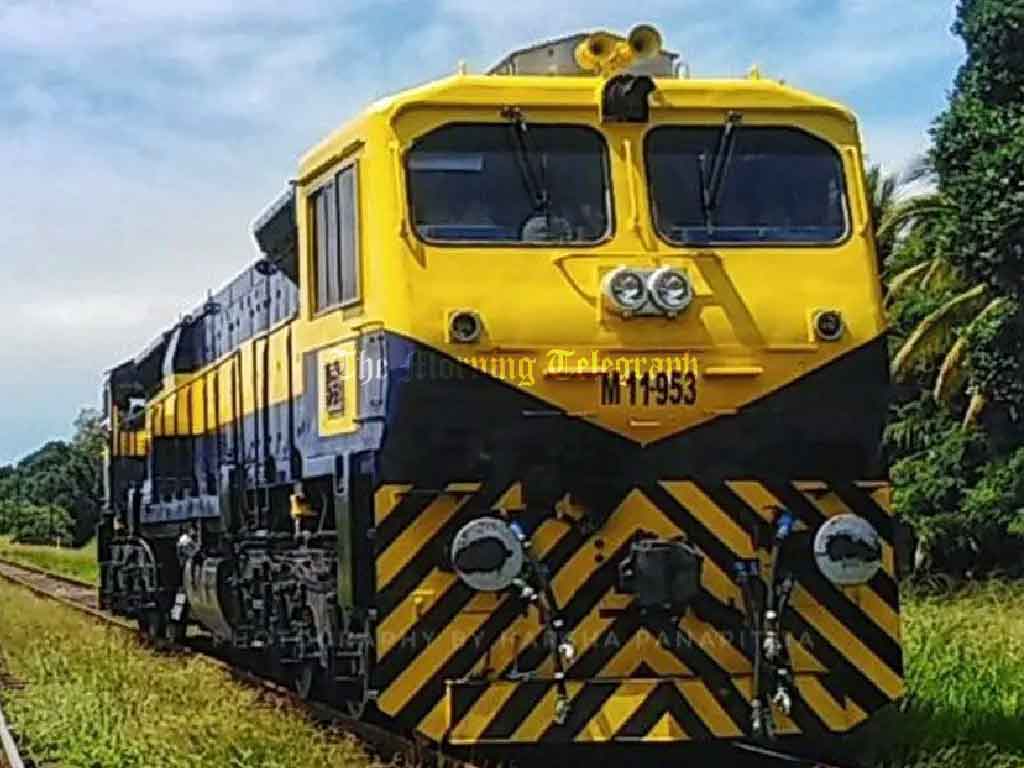
Five locomotives purchased under Indian credit concessions in 2019 for over Rs. 3,825 million remain unrepaired at the Ratmalana Railway Workshop. These M11 locomotives, imported at a cost of Rs. 765 million each, have been deemed unsuitable for Sri Lanka’s railway system due to a lack of proper technical evaluation during the procurement process. Despite being brought to the country over five years ago, no investigation has been conducted to identify those responsible for this costly and mismanaged purchase.
According to the latest audit report from the National Audit Office on the Railways Department, these locomotives were part of a batch of 10 purchased in 2019. While earlier models of M-class engines performed well, the newer M11 models have been plagued with technical defects, rendering them unfit for service. As a result, five of these engines have been decommissioned and remain in storage awaiting repairs. The report also revealed broader issues within the Railways Department, noting that out of its fleet of 103 M-class and 133 S-class engines, 47 M-class and 31 S-class engines have been taken out of service and left unrepaired for one to seven years.
The audit highlighted significant discrepancies in the pricing of engines, with M-class locomotives costing between Rs. 15 million and Rs. 765 million and S-class locomotives ranging from Rs. 8 million to Rs. 218 million. The lack of a technical evaluation during the procurement process has resulted in substantial financial losses and inefficiencies. Repairs have been further delayed due to a lack of spare parts, making maintenance both costly and time-consuming.
All Ceylon Railway General Employees’ Union President P. Withanage criticized the decision-making process behind the purchase of these locomotives. He revealed that the Railways Department did not appoint an official expert committee to evaluate the purchase. Although engineers visited India prior to the procurement, their involvement was informal, and the final decision was taken by the ministry rather than the department. This mismanagement has led to the current situation, where millions of rupees worth of locomotives lie unused.
In addition to the problematic locomotives, the audit report also highlighted issues with the procurement of 160 railway coaches under Indian credit facilities at a cost of $82.6 million (Rs. 11,564 million). While the estimated cost per coach was $0.3 million, additional charges brought the final cost to $0.558 million per unit. Technical issues with the coaches, including discrepancies in dimensions such as length, width, and height, were discovered. Despite this, only 10 of the 160 coaches were inspected, and the remaining 150 were accepted without inspection. This has further undermined the effectiveness of the project.
Sri Lanka Railways General Manager J.I.D. Jayasundara has stated that the unrepaired locomotives will eventually be fixed and put into service. However, the National Audit Office has recommended that future engine purchases prioritize technical compliance and address the shortcomings in infrastructure planning to avoid repeating such costly mistakes. The audit also stressed the importance of a comprehensive review of procurement procedures to ensure that funds are spent efficiently and that the Railways Department’s operational capabilities are not compromised.




